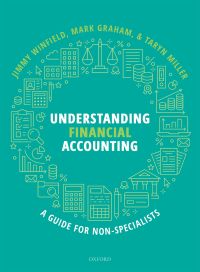Question
Luke Corporation produces a variety of products, each within their own division. Last year, the managers at Luke developed and began marketing a new chewing
Luke Corporation produces a variety of products, each within their own division. Last year, the managers at Luke developed and began marketing a new chewing gum, Bubbs, to sell in vending machines. The product, which sells for $5.30 per case, has not had the market success that managers expected and the company is considering dropping Bubbs.
The product-line income statement for the past 12 months follows:
| Revenue | $ | 14,683,650 | ||||
| Costs | ||||||
| Manufacturing costs | $ | 14,440,895 | ||||
| Allocated corporate costs (@5%) | 734,183 | 15,175,078 | ||||
| Product-line margin | $ | (491,428 | ) | |||
| Allowance for tax (@20%) | 98,285 | |||||
| Product-line profit (loss) | $ | (393,143 | ) | |||
|
| ||||||
All products at Luke receive an allocation of corporate overhead costs, which is computed as 5 percent of product revenue. The 5 percent rate is computed based on the most recent years corporate cost as a percentage of revenue. Data on corporate costs and revenues for the past two years follow:
| Corporate Revenue | Corporate Overhead Costs | ||||
| Most recent year | $ | 107,750,000 | $ | 5,387,500 | |
| Previous year | $ | 76,300,000 | 4,683,020 | ||
|
| |||||
Roy O. Andre, the product manager for Bubbs, is concerned about whether the product will be dropped by the company and has employed you as a financial consultant to help with some analysis. In addition to the information given above, Mr. Andre provides you with the following data on product costs for Bubbs:
| Month | Cases | Production Costs |
| 1 | 208,000 | $1,143,328 |
| 2 | 217,700 | 1,164,828 |
| 3 | 215,400 | 1,173,481 |
| 4 | 229,000 | 1,189,023 |
| 5 | 224,900 | 1,191,327 |
| 6 | 238,000 | 1,212,173 |
| 7 | 220,700 | 1,187,199 |
| 8 | 247,700 | 1,230,274 |
| 9 | 239,300 | 1,228,726 |
| 10 | 253,100 | 1,240,825 |
| 11 | 250,700 | 1,245,260 |
| 12 | 259,700 | 1,275,951 |
|
| ||
Required:
a. Bunk Stores has requested a quote for a special order of Bubbs. This order would not be subject to any corporate allocation (and would not affect corporate costs). What is the minimum price Mr. Andre can offer Bunk without reducing profit any further? (Round your answer to 2 decimal places.(i.e., 32.21))
|
b. How many cases of Bubbs does Luke have to sell in order to break even on the product? (Round variable cost percentage to 2 decimal places, fixed costs to whole dollar amount and profit per case to 3 decimal places for intermediate calculations. Round your final answer up to the nearest whole unit.)
|
c. Suppose Luke has a requirement that all products have to earn 5 percent of sales (before tax after corporate allocations) or they will be dropped. How many cases of Bubbs does Mr. Andre need to sell to avoid seeing Bubbs dropped? (Round your minimum price per case to 2 decimal places and do not round your other intermediate calculations. Round your final answer up to the nearest whole unit.)
|
d. Assume all costs and prices will be the same in the next year. If Luke drops Bubbs, how much will Lukes profits increase or decrease? Assume that fixed production costs can be avoided if Bubbs is dropped. (Use variable cost percentage to 2 decimal places. Round intermediate calculations and final answers to nearest whole dollar amount.)
|
Step by Step Solution
There are 3 Steps involved in it
Step: 1

Get Instant Access to Expert-Tailored Solutions
See step-by-step solutions with expert insights and AI powered tools for academic success
Step: 2

Step: 3

Ace Your Homework with AI
Get the answers you need in no time with our AI-driven, step-by-step assistance
Get Started


